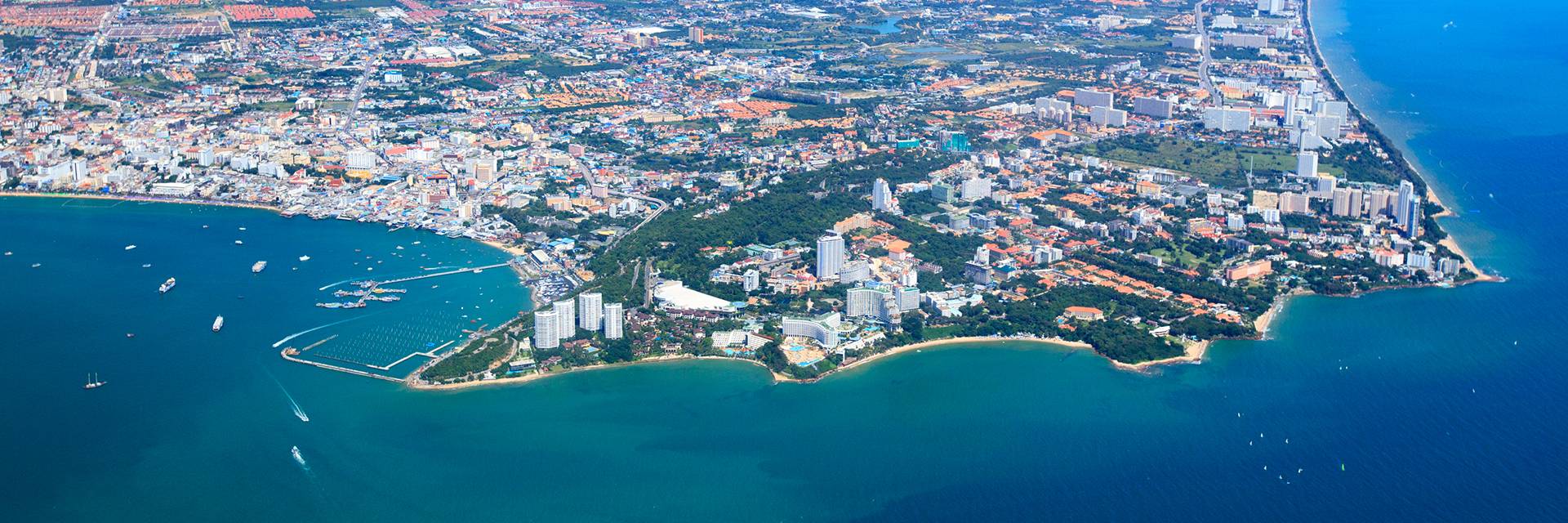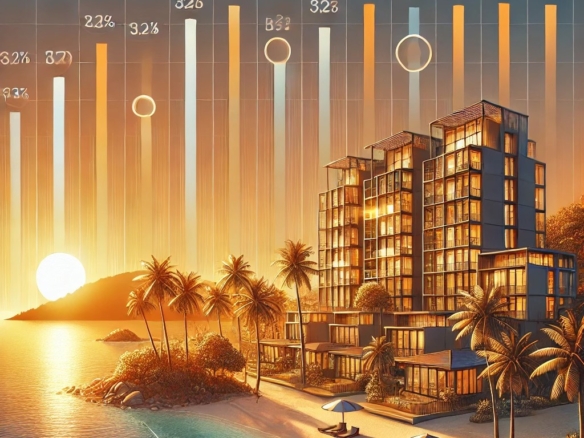Pattaya is a popular beach resort on the Gulf of Thailand, just 150 km southeast of Bangkok –a mere two-hour drive. Pattaya’s pulsating nightlife is well known, but local authorities have, in recent years, improved the quality of the beaches and reinvented the resort as a more family-friendly destination.
Today, hundreds of thousands of visitors are drawn each year to Pattaya to windsurf, water ski, swim, sunbathe, snorkel, sail, or take trips to nearby islands. Other activities include Bungee jumping, cycling, skydiving, go-Karting, Muay Thai (Thai boxing), and Paintball. Golfers, both novice and expert, are well catered to as well, with a wide selection of golf courses around Pattaya. Another major draw for visitors to Pattaya is the wide selection of restaurants serving some of Thailand’s freshest seafood. Due to the high number of expatriate foreigners in Pattaya, there is also an excellent selection of authentic foreign eateries serving French, Italian, Swiss, German, Hungarian, Scandinavian, English, Indian, Arabic, Japanese, and Chinese cuisine.
Khao Chee Chan Buddha Mountain opens 06:00 – 18:00 hrs. Dress modestly and please follow exactly as the rules state. Plus, you shouldn’t get too close to the Buddha because it may cause an accident.
If you want to visit Koh Lan, you can do it on a one-day trip. On the island, there are minibuses and motorbike taxis in services. But if you are feeling adventurous, you can rent a motorbike to ride for yourself.
During the night time, all the way down Pattaya road is full of various entertainment options. Here you can always find something to eat, drink, and just somewhere to chill out.
Credit : https://www.tourismthailand.org/Destinations/Provinces/Pattaya/469






Join The Discussion